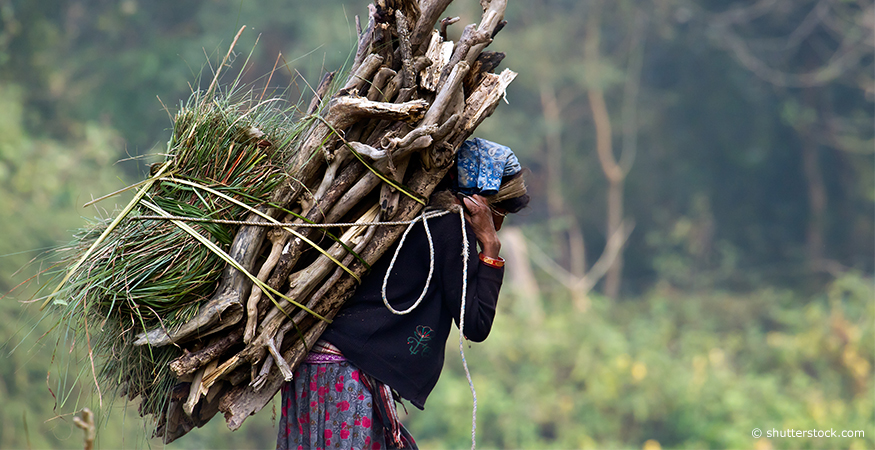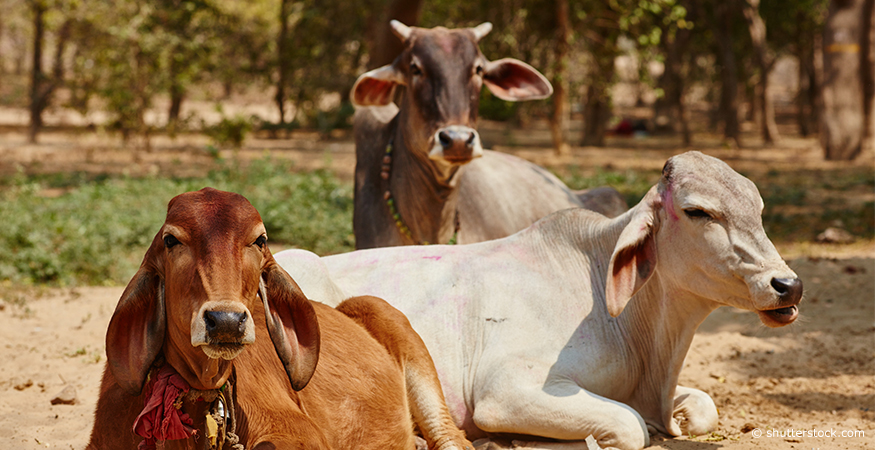The power of poop
Two healthy cows give enough dung daily to power a 2m³ biogas plant – this saves 7kg of fuelwood! But could it also protect people and wildlife?
For families in the Terai Arc Landscape (TAL), where annual cash incomes may be as little as Rs.12,000/-, fuel wood from forests is the primary source of energy. Wood from forests may seem free and easily available, but it comes at a hefty price. A number of villagers have lost their lives in chance encounters with wild animals while out in the forest collecting fuel wood for their families. These deaths are, in turn, avenged by angry villagers who kill the suspected animal.

Recognising this as an important reason for human-wildlife conflict in TAL, WWF-India has initiated the installation of alternative energy sources across the landscape as means to resolve this. In the first phase, 12 villages were selected for the project. Of these, two villages in Rajaji National Park (Western Terai) received 20 biogas plants in March 2015.
Together, the two villages— Ganga Bhogpur Talla and Ganga Bhogpur Malla—form a community of approximately 300 families (according to the 2011 census).
In 2014, two women from these villages died from elephant encounters while they were out collecting fuel wood in the forest.

Rural folk may not have cash incomes that allow them to purchase cooking fuel, but most of them are equipped with at least a couple of heads of cattle and a small patch of land for subsistence farming. The math is simple: two healthy cows can provide enough dung daily to power a two-cubic meter biogas plant, equal in energy to 7 kg of fuel wood. Research has shown that that is sufficient to power the stove of a family of six.

An average family, with 4-6 members, requires about 7 kg of fuel wood daily or around 2550 kg annually. When applied to an entire village, that number multiplies to reach daunting figures. Although 20 biogas plants seem like a modest start, it will relieve logging pressure by about 50,000 kg or 50 metric tonnes of wood each year.
Biogas is an affordable and efficient alternative to fuel wood. But, more importantly, it’s a clean fuel. Over two-thirds of India’s 1.3 billion people continues to rely on carbon-emitting biomass for cooking, according to a 2014 United Nations Industrial Development Organization (UNIDO) report titled ‘Sustainable Energy For All’. This results in almost a million deaths per year, most of whom are women and children.

This entry was posted in Uncategorized and tagged #Tiger #WWF #SaveOurTigers #WildLife #Nature